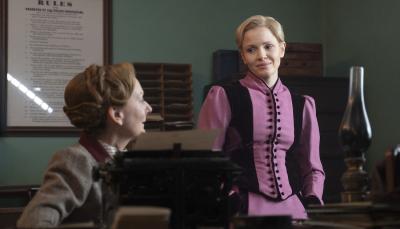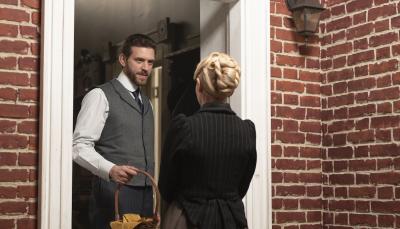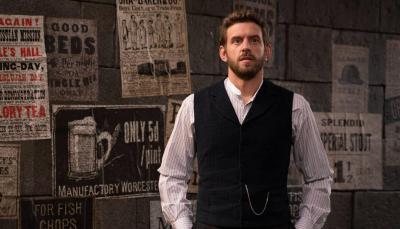'Miss Scarlet & The Duke' Season 1 Finale Recap: "The Case of Henry Scarlet"
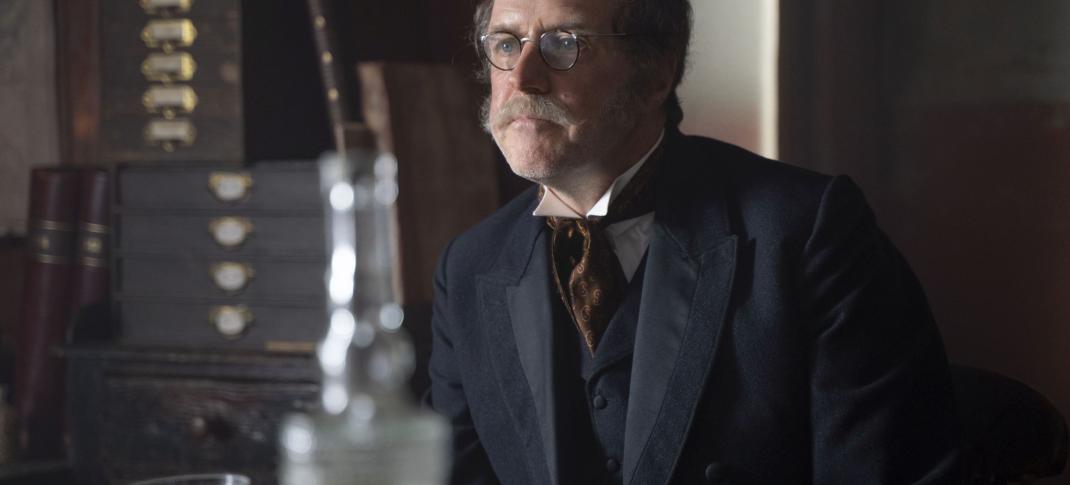
Taking Miss Scarlet & The Duke as a holistic whole, the series' first season feels as if it could be properly divided into two parts. The first four episodes — the bulk of the season's story — was the struggle Eliza has in being at the forefront of women stepping into traditionally masculine spaces. It's an area where mysteries, mostly period set ones, especially female-fronted ones, rarely dwell. It's a difficult place to traverse, partly because 100 years on (in Eliza's case, 130 years on), there's a level where we don't want to remember just how ugly a struggle it was, and partly because we don't want to face how big a struggle it still is today.
Duke: If we wait, we will no doubt have a disagreement about something irrelevant, and we will have to postpone. Again.
But with the last two episodes, Miss Scarlet allows itself the luxury of letting the struggle lapse for a minute in favor of a two-part adventure where everyone stands on equal footing for a second, fighting the same battle together. It helps that, in this case, it's less of a one-off whodunit, like earlier installments, where the mystery was more singular. (Who is sending the ghostly photos, who killed the dead man in the parlor?) But counterfeiting tens of thousands of pounds (about £8m in today's money) isn't a one-person job. Moreover, it the kind of job that only happens if one has help on the inside.
Nor are the string of murders that are starting to pile up. Henry Scarlet was the first, but with Harwood, Garm, and Nathaniel Caine also now dead after last week, and assassin in a leather mask on the loose, this is the sort of case where everyone needs to be on board, from Eliza to Duke to Frank to Honeychurch. Unfortunately for Eliza, Duke thinks she absolutely shouldn't be on board, once again tripping up any push towards a more comfortable team scenario. it doesn't help that evidence points towards Moses. But it also doesn't help that Stirling doesn't take Eliza's security seriously either — to the point where Duke starts to wonder if his boss might be that inside help.
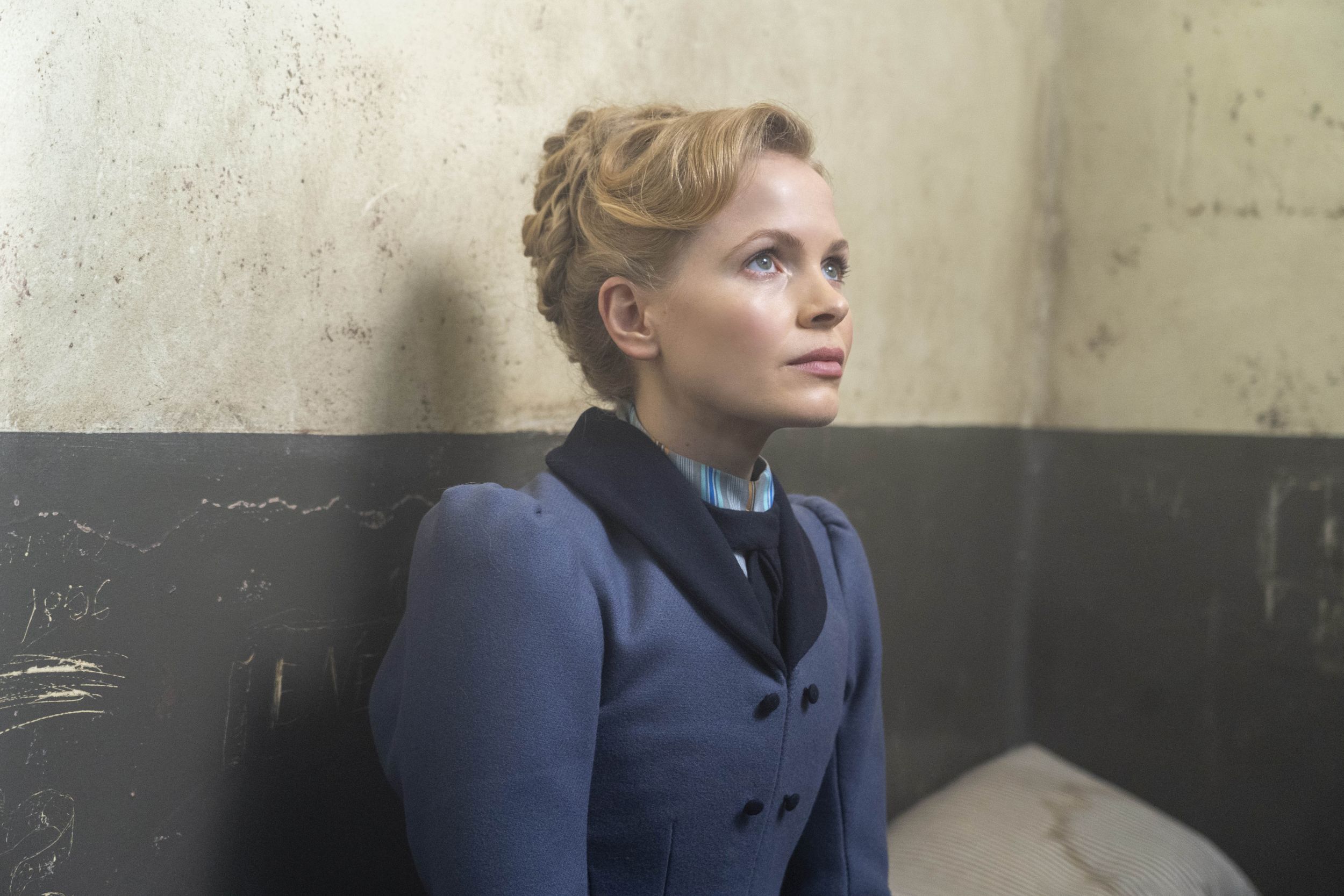
Using Stirling as a red herring for the real main antagonist was a small work of genius on the part of the show when Nathaniel's brother Benjamin Caine (Will O'Connell) reveals who threatened him. It plays into everything viewers hope will happen. Stirling is in Duke's way of promotion and biased against him besides. He needs to be removed. He's actively compromising Eliza's safety, going as far as to cancel her police protection. Naturally, we want him to turn out to be aligned with those murdering bastards because it's an easy escalation. But the thing about this series is it defies our desires like that. Stirling isn't a "big bad" of the series, just a jerk with power. And now he's dead.
Moses lasted longer as the other red herring, driven by the unspoken competition between him and Duke over Eliza. (Though let's be real, the only one who is super jealous here is Duke. Moses is just fine Mosesing along.) I did think it fun the show opted to bring back The Padre from the opening episode as Moses' envoy. I like both him and Eliza's original street urchin and have high hopes both will find recurring roles in Season 2. Moses may cut a threatening figure on occasion, but, in the end, he's not a bad guy.
Unfortunately, that left a relatively small amount of speaking parts to turn out to be at least the inside man, if not the head of the counterfeiting ring. The show chose to have them be the same, Duke's right-hand-man Frank. It was a surprising choice; even once it became clear that all signs were pointing to Frank, it almost seemed like a third misdirection. (In another series, Frank would be a pawn with a redemption arc.) If it weren't for the episode basically about to be out of time, I might have insisted it could not. But no, there was the leather hood right in Frank's closet for a drunken Duke to stumble across.

Even so, if nothing else, the Frank reveal gave us our first good look at Tilly Hildegard as an actual person instead of a sad face standing behind her father waiting to be sold to Rupert like a hunk of meat. Tilly is a force to be reckoned with, one neither Rupert nor Eliza realized was hiding in that buttoned-down plain Victorian visage. On the one hand, I have to admit I want better for her than to marry a closeted soul like Rupert, who does not love her. On the other, I look forward to their upcoming disaster of a marriage as Tilly grows into becoming the next generation of Mrs. Parker. Those two women are going to be terrifying when you get them in the same room. Season 2 is going to be wild.
And then, of course, there's the Duke-Eliza situation. The egg scene is one of the season's best one-on-ones, where Duke turns out to be the one who is capable of kitchen basics, while Eliza has managed to avoid ever learning. Shows like this rarely take the time to remind viewers that the basics of keeping ourselves alive were a full-time job before modern technology. For a Victorian woman to take on these contemporary roles actively means rejecting what would otherwise be their traditional sphere, in this case, cooking. It's also a reminder of the class differences as play. Duke does not have someone like Ivy to do all the cooking for him, whereas Eliza's never lived without.
Moses arriving in the nick of time to take out Frank and save Duke's life adds another wrinkle in the evolving relationships as the finale draws to a close. It also sets up an interesting dynamic for a new season. Duke's world has been utterly upended, with no boss and no bagman, opening up new spaces for different types of characters next season. In comparison, Eliza's world is now settled, with Rupert and Tilly holding the purse strings, Moses and Ivy working for her, and Duke as a semi-equal in the field.
If I were in Eliza's shoes, I'd celebrate by going to dinner too.


